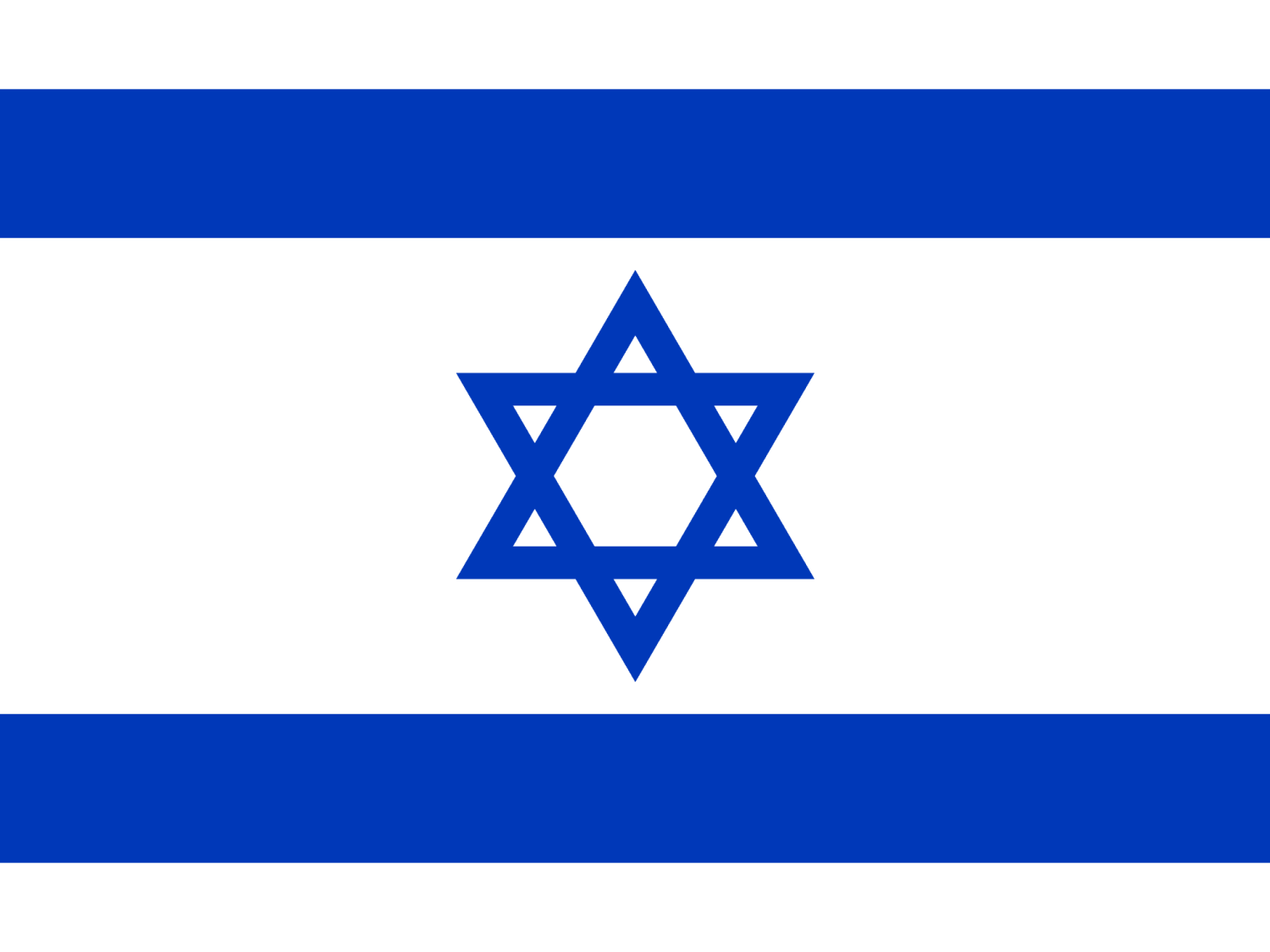Moving to Israel
Simply move better with reloqio
✔️ Get offers free of charge – No obligation, no worres.
✔️ Quality-tested partners – Reliable and experienced.
✔️ Selection in your region – Find the perfect offer and save up to 45%.

Overview
Introduction to Israel
Israel, located in the Middle East along the Mediterranean coast, is a country known for its deep historical significance, religious landmarks, and vibrant culture. As a technological powerhouse and a hub for innovation, Israel offers a unique blend of ancient traditions and cutting-edge modernity. Cities like Jerusalem and Tel Aviv are at the heart of this contrast, with Jerusalem serving as a religious and historical center, and Tel Aviv known for its cosmopolitan lifestyle. However, Israel also faces ongoing challenges, including regional security concerns, political tensions, and the complex dynamics of its diverse society.
Why Move to Israel
Moving to Israel offers the opportunity to live in a country that is at the crossroads of history, religion, and innovation. The country is known for its high standard of living, world-class healthcare, and thriving tech industry, making it an attractive destination for professionals, particularly in technology, medicine, and academia. Israel’s rich cultural life, diverse food scene, and strong community ties are also draws for many expatriates. However, potential residents should be prepared to navigate the complexities of Israel’s security situation, the high cost of living, and the ongoing political issues that can affect daily life.
Cost of Living in Israel
The cost of living in Israel is relatively high, particularly in major cities like Tel Aviv and Jerusalem. Housing is one of the biggest expenses, with rental and purchase prices among the highest in the region. Other costs, such as food, transportation, and utilities, are also higher than in many Western countries. While salaries in sectors like technology are competitive, expatriates need to budget carefully to maintain a comfortable lifestyle. Additionally, the high cost of imported goods and services can add to the overall expense of living in Israel.
Visa and Residency
Types of Visas
Israel offers several types of visas, including tourist, work, and student visas. The most common visa for expatriates is the work visa, which requires sponsorship from an Israeli employer. The process of obtaining a work visa involves submitting various documents, including proof of employment, qualifications, and a clean criminal record. Additionally, Israel has a Law of Return, which grants Jewish individuals and their immediate family members the right to immigrate to Israel and obtain citizenship. It’s important to ensure that all visa applications are complete and accurate to avoid delays.
Requirements for Obtaining Residency
Obtaining residency in Israel typically begins with securing a work visa or immigrating under the Law of Return. Once in Israel, expatriates can apply for temporary or permanent residency, depending on their circumstances. The process requires various documents, including proof of income, housing, and health insurance. Permanent residency allows expatriates to live and work in Israel indefinitely, but it involves a more thorough application process and may require demonstrating ties to the country, such as employment or family connections.
Renewing Residency
Renewing residency in Israel usually involves extending your work visa or applying for a new one. The process is generally straightforward but requires timely submission of all necessary documentation. For those on temporary residency permits, renewal may involve proving continued employment and financial stability. It’s advisable to start the renewal process well before your current permit expires to avoid any lapses in legal status. Employers often assist with the renewal process for work visas, but it’s important to stay informed about any changes in immigration laws.
Finding Accommodation
Popular Neighborhoods in Israel
In Tel Aviv, popular neighborhoods for expatriates include Neve Tzedek, Florentin, and the White City, known for their vibrant atmosphere, proximity to the beach, and cultural amenities. In Jerusalem, neighborhoods like Rehavia, German Colony, and Baka are favored for their historical charm and close-knit communities. Housing in these areas can be expensive, but they offer access to international schools, healthcare, and social hubs. For those looking for a quieter lifestyle, cities like Haifa and Ra’anana offer more affordable housing and a strong sense of community, with good access to services and amenities.
Renting vs Buying Property
Renting is common among expatriates in Israel, particularly those on short- to medium-term assignments. Rental properties range from modern apartments in city centers to more spacious homes in suburban areas. Rental agreements typically require a security deposit and are usually for one year, with the option to renew. Buying property in Israel is possible for foreigners, but the process can be complex and involves significant financial commitment. Property prices in major cities are high, and the legal process can be complicated, particularly for those unfamiliar with Israeli property law. It is advisable to work with a reputable real estate agent and legal advisor if considering purchasing property.
Tips for Finding Accommodation
When searching for accommodation in Israel, consider factors such as proximity to work, access to public transport, and availability of amenities like schools and healthcare. Working with a local real estate agent can be helpful, especially for those unfamiliar with the market. It’s also important to inspect properties carefully before signing a lease, as the quality and size of housing can vary widely. Be prepared to negotiate rental terms, and ensure that all lease agreements are clear and legally sound. Given the high demand for housing in popular areas, it’s advisable to start your search early and be ready to move quickly when you find a suitable property.
Israel’s strategic location offers easy access to neighboring countries and regions, though travel can be subject to political considerations. For those interested in exploring the region, the historical richness and cultural diversity of Egypt, the modern cities and desert landscapes of Jordan, or the cosmopolitan environment of the United Arab Emirates are all within reach, provided that travel restrictions and safety advisories are taken into account.
Settling In
Healthcare System in Israel
Israel has a well-developed healthcare system that is considered one of the best in the world. Public healthcare is available to all residents through a system of health insurance funds (HMOs), and the quality of care is generally high. However, many expatriates choose to supplement this with private healthcare for faster access to specialists and shorter waiting times. The cost of private healthcare can be high, so comprehensive health insurance is recommended. Israel’s hospitals and clinics are well-equipped, and medical staff are highly trained, making it a reliable place for both routine and specialized care.
Education System in Israel
Israel offers a range of educational options, including public schools, private schools, and international schools. Public schools follow the Israeli curriculum, with instruction primarily in Hebrew, which can be challenging for non-Hebrew-speaking children. Many expatriate families opt for international schools, which offer curricula based on British, American, or International Baccalaureate (IB) systems. These schools are mainly located in Tel Aviv, Jerusalem, and Haifa, and they are known for their high academic standards, though fees can be high. Early application is recommended, as spaces in international schools can be limited.
Cultural Etiquette and Customs
Israel is a diverse society with a rich cultural tapestry influenced by Jewish, Muslim, Christian, and Druze traditions. Understanding and respecting local customs is important for expatriates. This includes observing the Sabbath (Shabbat) from Friday evening to Saturday evening, when many businesses close, and public transportation may be limited. Dress codes can vary, with more conservative attire expected in religious areas. Social interactions are generally informal, but it’s important to show respect for religious practices and national symbols. Additionally, given the complex political environment, expatriates should approach discussions on politics and religion with sensitivity and caution.
{filterable_table}
Ready for your move to Israel? Get free quotes now!
Enquire about moving offers here and get quick answers with cost estimates.
It only takes 2 minutes and you can save up to 45% on your move to Israel!
